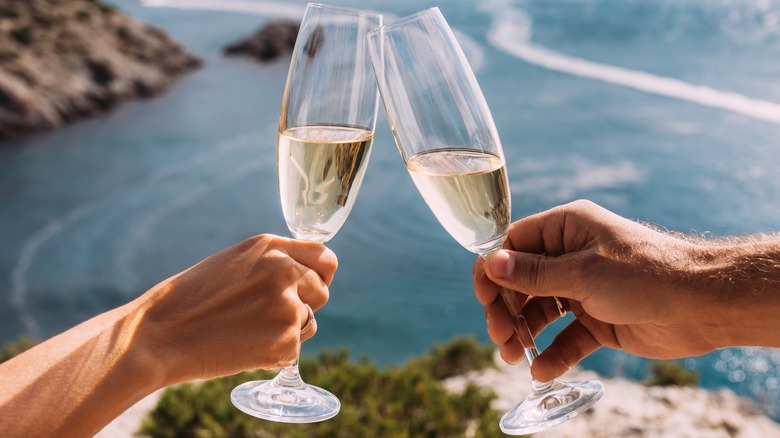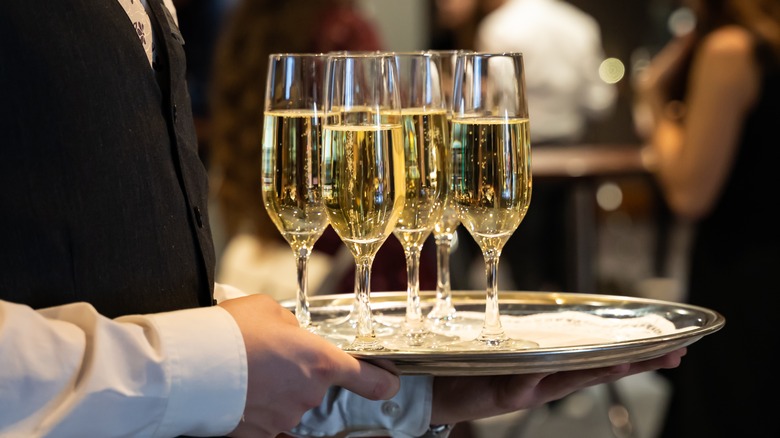Why You Should Consider Decanting Champagne Before Serving
It's not a celebration until you hear the celebratory "pop" of the Champagne bottle. "It's a symbol of status, prestige, and quality, but also a symbol of joy and celebration," Francoise Peretti, the Champagne Bureau UK director, tells Harper's Bazaar. "It is a happy drink which elevates any occasion and experience — the simple act of opening the bottle and hearing the soft pop never fails to bring a smile to people's faces." Champagne can certainly make us smile, but what exactly is this drink?
Champagne comes from the Champagne wine region of France, according to Cométi Champagne. It's simply a sparkling wine with bubbles. There are many types of champagne, including dry, extra dry, brut, and extra brut, and prices vary greatly. Although we collect cases of it for New Year's Eve, parties, and weddings, champagne can and should be enjoyed on any occasion — especially with food.
You may have noticed that as soon as the cork is popped, Champagne is poured immediately into flutes or glasses. It's sort of a tradition to pop and pour, but there's something you should try before filling the glasses next time to get the best flavor.
Decanter your bubbly
When you first bring Champagne home, make sure it is stored properly. Until the cork is popped, Champagne can last for years. Decanter recommends you store your Champagne bottles in a refrigerator that is kept at a steady temperature. If not, find a cool place away from any light if you intend on opening the Champagne within a month. If you plan on storing Champagne for longer, the bottles must be laid on their sides and stored on an appropriate wine rack — preferably in a cellar — so the corks don't dry out. When it's time to share your Champagne, get the glasses ready, but don't pour it immediately after popping the cork — instead, grab your decanter.
You may have noticed in some restaurants and bars, wine is decanted before serving. This helps the wine breathe and allows the wine drinker to taste more notes, per JJ Buckley Fine Wines. Champagne has layers of notes, just like other wines, and should also be decanted. According to WineEnthusiast, decanting Champagne allows the bubbles to calm down a bit and the flavors and aromas to become more pronounced. Bubbles are fun and look pretty in a Champagne glass; however, they can overpower the notes in the drink. Open your Champagne often to share with friends and remember to use your decanter to bring out the best in the drink.

